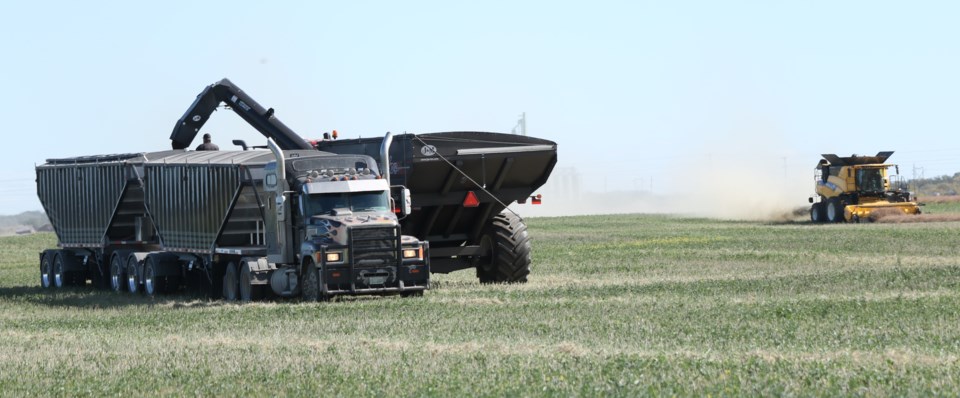The same can be said provincially and across the Prairies, as canola has become the primary crop, at least in terms of value for many producers.
Of course the focus of the canola industry is the production of canola oil, which has carved out a significant market in terms of human consumption – the veg-oil sector being a massive one where canola often wins out based on its unique oil.
While the market for food oil grows, there is also the potential for biofuels, an area where interest is strong, but often reined in based on the cost of canola oil being prohibitive to be used for fuel.
But, while oil is the key commodity from canola, the crush process leaves carloads of canola meal as a by-product, one with a more limited market.
While the meal is used as a livestock protein source it is not exactly a hugely lucrative market.
And while there is obviously increased interest at present in non-meat alternatives to meat using grains as a base, the protein high canola meal has not proven particularly palatable for human consumption – at least yet. I say yet because science is likely to eventually crack the palatability issue and open canola meal to a huge new market.
But, in the interim, a recent Canadian Light Source release has to have both producers and crushers taking notice.
After years of meticulous research, Dr. Ajay Dalai’s exploration of canola meal pellets as an eco-friendly alternative to coal and natural gas for both heat and energy is poised to move into its next phases – scaled-up pellet production and commercialization, begins the release.
“Eventually, the world is going to phase out coal because of pollution,” said Dalai, Canada Research Chair of Bio-energy and Environmentally Friendly Chemical Processing in the University of Saskatchewan (USask)’s College of Engineering in the release. His quest is to find ways to turn leftover materials from crop production, like canola meal, into biocoal. It is already happening in the forest industry but not in agriculture, he said, despite an ample supply of biomatter.
In 2019, Canada produced over 18 million tonnes of canola and 10 million tonnes came from Saskatchewan. The oil extraction process leaves behind canola meal, which is about 60 per cent of the original crop by weight. Some canola meal is exported and about 40 per cent is fed to livestock. The remainder is what Dalai sees as potential biocoal, detailed the release. The challenge is to produce high-quality pellets suitable for storage and transportation to facilities where it can be burned to produce heat and power, he said.
“The potential of using biomass for bioenergy is enormous and exciting,” said Dalai. In addition to generating significant revenue for the agriculture industry, “We all have a responsibility to create an environment that will be good for our children and grandchildren.”
This is the sort of future market development which holds promise for not just canola meal, but other crop by-products such as flax meal, and even straw residue as alternative heating options become more popular.

